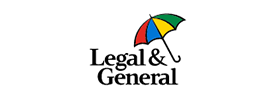As a new homeowner in Texas, you have got a number of things to consider as you settle in to your new place. Whether you live in Coppell or in one of the surrounding cities, new homeowners will always want to make sure that they have a good home insurance policy to protect the newly purchased home and all of its contents. Keep reading for a few of the most important things that you’ll need to think about as you buy your new homeowners insurance.
New Texas Homeowners: What to Consider when Purchasing Home Insurance
You need to consider the cost of rebuilding your home when you purchase your new homeowners insurance. Insurance agents recommend that you purchase a 100 percent replacement cost policy. This type of policy will ensure that if your home is destroyed and must be rebuilt, you will receive enough money to rebuild it today. Your insurance agent will guide you in determining this cost, and in finding qualified appraisers if necessary.
For the contents of the home, consider replacement value versus actual cash value. Since insuring home contents for actual cash value is less expensive, many homeowners may choose this option — but when they need to use the policy they could get an unpleasant surprise. An actual cash value policy will insure contents for exactly what they are worth at the time of loss. This could mean, for example, that the tv you purchased for $4,000 five years ago is now worth only $500 due to depreciation and wear and tear. In an actual cash value policy you would be compensated only for the value determined after adjustment for depreciation and wear and tear. Many Coppell homeowners will prefer to get a home insurance policy with replacement value coverage since this will reimburse you with enough money to buy replacements for lost items, at the price they will cost today.
If you are confused about your personal insurance needs, use these things to consider as a starting point, and then consult with your insurance agent. Your insurance agent will help you to make sure you and your new home are well covered, now and in the future!






















